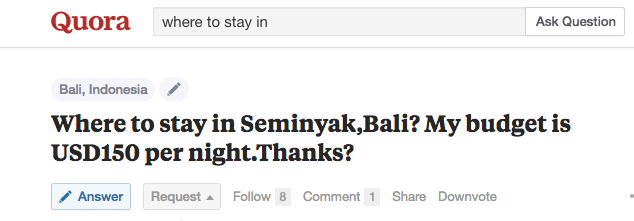You already know how to carry out keyword research and have followed our tips for your on-page optimization, but there are still many SEO stones left unturned.
That’s why we’re about to tackle the basics of off-page SEO.
Off-page SEO is the name for another set of hugely important techniques and actions you can perform away from your website which will have an effect on your search engine rankings.
Think of it this way: off-page SEO is how Google knows what other reputable websites think about your site. One of the most important ways Google picks up on this is via the links going to your site from elsewhere. In other words, if you’ve got strong links coming from reliable sources, Google will trust you’ve got great, valuable content.
When done well, these actions help your website to position highly in search engine results pages, can help to build your vacation brand and even boost traffic to your website!
We’ve put together this list of 10 off-page SEO actions you can start implementing today to improve your chances of positioning in Google.
1. Ask for links within your network
If you’ve just published your vacation rental website, one of the easiest ways to get a few links is by approaching people you already know. Hopefully, they’ll be able to help by adding a link to your site on theirs!
Here are some ideas to get you started:
- Businesses local to your vacation rental
- Your property photographer in their portfolio
- Previous guests with travel blogs
- Friends and family around the world who have websites
2. Build links in your target country
Some of the best links you can build will be those coming from the same country as your website. That means, if your website domain has a country-specific extension, you should aim to build links with the same country extension.
For example, if your website domain is villalaloca.es, you should try to reach out and build backlinks from other websites which use .es as the extension. Doing this will help give your site more authority in your location, which is even better for Google.
3. Get active on social media
Social media is one of the most powerful tools consumers have at their fingertips nowadays. Whatever question they need answering, food recommendations they require, or even a customer complaint they want to file, they turn to social media sites like Facebook, Twitter, Instagram and LinkedIn.
It’s not a difficult task to create social media pages, but the important thing is you’re active and helpful. Make sure you answer any queries that come in in a timely manner – whether they’re about your rental, its location, or any other aspect of the potential vacation; respond to comments and messages like a real person – not like a computer; and most of all, be the friendly, helpful voice representing your brand.
4. Answer questions on Quora for links that drive traffic
While Quora links aren’t of the highest quality, they certainly do drive traffic. As bookings are the endgame here, scour Quora for searches related to your area and include a link back to your website or blog in your answer – easy!

5. Participate on other blogs
Blogs are a great way to boost off-page activity. Identify some of the best blogs that are relevant to your niche – whether they’re travel-focused, accommodation-based or experience-rich – then get involved!
Read the blog posts, leave regular comments, and connect with the writers and other readers to build rapport in this sphere. Once you have a foot in the door and the blog owner or writer knows who you are, get in touch to inquire about a guest post. More often than not, blog publishers will be happy to offer the platform to those who participate regularly and understand the themes covered in the blog.
6. Register your website on local directories
If you have a multilingual vacation rental website with different domains, or sections for each country, then you should think about making multiple entries on relevant directories such as Google Places, as well as any other national and regional sites.
This will really help boost your reputation in Google for the different locations, and make it easier for your website to appear in search results.
7. Build links within blog posts
Useful links from inside good content are the most likely to be clicked, so that’s why Google ranks them as the most valuable type of link to build.
So for those vacation rental owners who already have a blog, don’t be afraid to reach out to other relevant blogs and websites for link building. A good tactic is looking for old blog posts related to something you’ve also covered, containing links which are now outdated. Get in touch and find out, could they replace their links with one to your site as a source of newer, more reliable information?
8. Steer clear of low-quality links
Spammy, low-quality links which come from websites which are low on trust and authority won’t give your vacation rental website any link power – so just don’t do it! It will only waste precious time you could have been spending building high-quality links.
9. Avoid black-hat strategies
There are some link building strategies out there that actually do more damage than good.
So, avoid these at all costs:
- Link farming (groups of websites whose sole purpose is to increase the links of another website)
- Link buying (exchanging money for links or for blog posts that include links)
- Excess 1:1 link exchanges
- Article submissions (e.g. for Ezine Articles, eHow etc.)
10. Interview a local “celebrity”
Another great way to achieve links from websites in your local area? Interview a local “celebrity” for your vacation rental blog. Perhaps there is a well-known chef whose business has served your town for years? A local sporting team that has a 10-year winning streak?
It doesn’t have to be someone who is famous on an international level, but someone who is recognized in your community will help other sources (such as local news and blogs) pick up the story and link back to your site – generating more visibility for your vacation rental.


